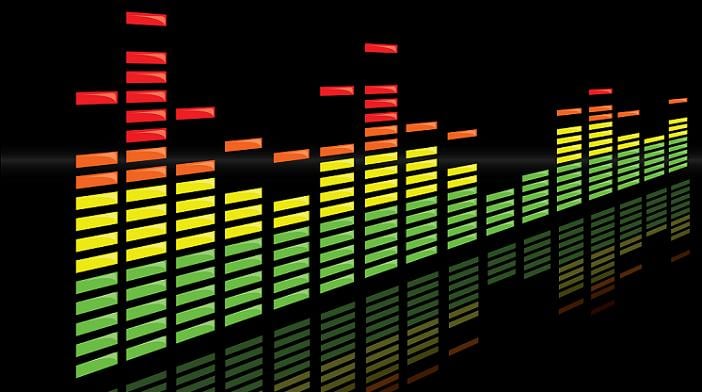 Fleet Foxes made sure journalists knew the story behind Helplessness Blues. (Image via fleetfoxes.com)
Fleet Foxes made sure journalists knew the story behind Helplessness Blues. (Image via fleetfoxes.com)
A version of this article originally appeared on Sunshine Promotion.
If you missed part one of this series, click here to learn the truth about what bloggers are actually looking for, and why pitching Pitchfork might not be the best step right away.
Of course, your completed album is the most valuable thing you have until someone finally writes about it, but let's take a moment to see what kind of assets (pieces of content) you'll need to have for a "traditional" press campaign. Having the following pieces of information available will greatly increase your likelihood of getting coverage. The reason? Simply put, it makes it look like you have your shit together.
As I'm getting ready to start reaching out to bloggers, I make a folder on my computer that has easy access to the following information. This should also be included on the band's website.
- Biography: Your biography should be no more than 200 words long. It should include the type of music you make, band member names, notable accomplishments, and quick info about your new release.
- Music: Include links or embeddable SoundCloud/Bandcamp players to all of your band's releases on this page.
- Videos: Have at least one live video and one music video if possible. Live videos help tremendously when fighting for tour press.
- Tour dates: Widgets like Songkick and Bandsintown make it easy to include tour dates on your website.
- Contact: I can't stress how important a contact page is. An email address for your band is necessary at the very least, but information about your management, publicity, and booking contacts are also very helpful.
- High-resolution photos: I recommend having at least three photographs ready for press distribution on your website: your album artwork and two photographs of the band. These photographs should be well-lit and all of the band members' faces should be visible. All photographs should be at least 300 DPI and available in CMYK color. For more information about press-ready image sizing, resolution, and colors, please click here.
The key to scoring coverage: tell a unique story
Bloggers communicate with words and stories. Not only do you have to tell a story with your music, you also need a story for press to write about you. A captivating story of the difficulties encountered with writing your album, personal breakups, or crazy tour stories that influenced a particular song all make for great content. Bloggers need something to write about you, so think about what makes your album recording process different and make sure to tell bloggers about it. A good story and mediocre music makes for a better read than a flawlessly recorded album without any struggle.
Here are a few example "stories" that have accompanied successful album releases.
- Bon Iver, For Emma, Forever Ago: After a breakup with his band and girlfriend, Justin Vernon retreated to a cabin on his parents' land to record one of 2007's most popular albums.
- Wilco, Yankee Hotel Foxtrot: Considered by many to be Wilco's mainstream breakthrough album, the entire recording process was fueled by frustrations with long fights with their record label that ultimately led to the band getting dropped because their new release, Yankee Hotel Foxtrot, was too weird for the label's tastes.
- Fleet Foxes, Helplessness Blues: After almost finishing recording their second album, Helplessness Blues, Fleet Foxes threw the entire record away and started writing and recording the whole album again. The process took close to two years to complete.
- Damien Rice, O: Rice was fed up making albums under a major record label and recorded an independent solo album called O in 2001, dedicated to his friend who died of a traumatic brain injury. The bare-bones recording style and lack of major label backing propelled the album to platinum status.
How should you send your music to writers?
You've got your music out there, but where should you upload your songs for the easiest listening experience?
SoundCloud, Bandcamp, and YouTube are the most popular options, most notably because they have mobile-ready streaming platforms that bloggers and writers can use when they're not at their computers. Also, those three are the easiest media players to embed into a blog post. If you're close to getting coverage, don't blow it by not having your songs already available on a popular streaming platform.
[Did you know you can email your Sonicbids EPK in a professional, seamless package to the press? Click here to learn more!]
Content descriptions
Once you've uploaded your music to a streaming platform, you should make full use of the "description" section of the player to make basic information about your band, links to buy songs, and links back to your website immediately available. Take a look at the descriptions of these popular artists' SoundCloud and YouTube page descriptions for an idea of what to include:
Press release, one-sheet, or both?
Your press release or one-sheet isn't a substitute for human interaction. Mass emailing your press release to every industry person whose email address you can get a hold of is a good way to get ignored and blocked. Press releases and one-sheets are good additional items to send over to a person in the press, but should only be an accompaniment to your original email. Press releases are designed to provide more information to the person on the receiving end of your promotional emails, not replace an initial point of contact.
Most folks know what a press release is, but a one-sheet is a term most often found in radio promotion campaigns. It's exactly one piece of paper that has all of the relevant information about a band and their newest release. They're sent with CDs to radio stations so on-air DJs can have something to talk about if they need a few facts about the new album. One sheets include release dates, track listings, mini-biographies of the band, a press photo, notable press quotes about the project, and most importantly, contact information for the publicist, promoter, manager, or band member who can answer any questions about the project. In rare cases, radio DJs or bloggers may need a last-second quote for a story they're running, so having a phone number or email address at the bottom of a one sheet allows them to easily contact the person in charge of the project and get the information they need.
This series has finished! Move on to the next three parts:
- Part 3: Follow this detailed 16-week album release schedule
- Part 4: Crafting the perfect pitch email to get noticed by writers
- Part 5: Learn why the follow-up email is more important than your first email
You can also check out "Ask a Music Journalist" for some firsthand advice from the other side of the desk.
Nicholas David is the founder of Sunshine Promotion, a boutique music marketing and publicity agency based in Orlando, FL. Its roster has seen coverage in both local and national music publications and song placements on MTV, FOX, and CNN.







